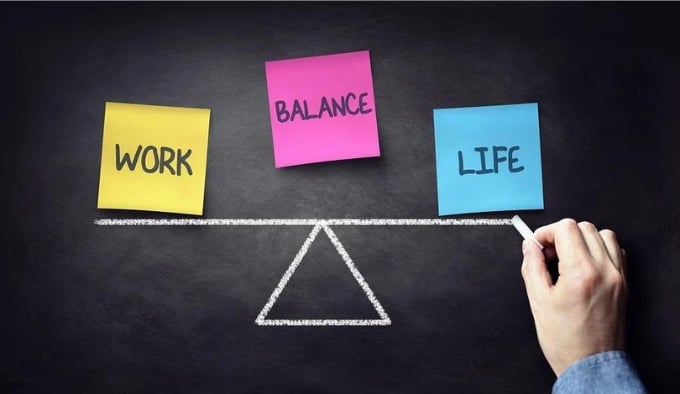Have you ever felt overwhelmed with work or at home? How about both?
If you answered yes to either statement, you are not alone. According to Mental Health America, 1 in 4 adults described themselves as “super stressed”. The root cause of that stress has been linked to constant exposure to negative stressors revolving around feeling overwhelmed with work and home life. With a large portion of the working population reporting high levels of feeling stressed, it’s worth questioning: Is work-life balance a myth?

Finding Work-Life Balance
Busting the work-life balance myth begins with knowing how a lack of balance and control throughout the week exposes us to prolonged stress. This type of stress, known as negative stress, has been identified as the culprit to not only emotional, but also physical discomforts that may otherwise seem not explainable. Some of these physical effects include:
- Musculoskeletal: Stress can be to blame for tense muscles which can lead to discomfort in different muscle areas and tension headaches.
- Heart Health: Prolonged stress has physical impacts on our heart contractions and elevate stress response hormones and blood pressure.
- Digestive Health: Stress induces altered eating patterns such as over or under consuming foods, can cause nausea, and even negatively affect bowel movements.
- Reproductive Health: Prolonged stress affects the production of hormones and can lead to changes that affect both men and women.
Some of these make sense when you consider imminent work deadlines, and seemingly never ending physical demands week after week.
Six Tips to Reduce Stress Now:
- Communicating your needs at work: Don’t feel stuck with deadlines or schedules if they feel impossible. Communicate concerns with peers and supervisors/managers. Many organizations have an EAP (Employee Assistance Plan) resource for their employees which can be used for anything from daycare to accommodating available mental health services.
- Maintain your physical health: Due to the stress from feeling overwhelmed by our work or home life, it is important to reduce the physical impact by maintaining a healthy diet and physical outlet throughout the week. Begin with small goals. Anything that will get your heart rate going will benefit your body.
- Don’t let vacation or personal days go to waste: Often employees feel that they can’t take advantage of time off due to work demands. Don’t let well-deserved time go to waste- utilize this time to catch up on time away or activities you enjoy. If your company allows personal days, take them! Learning to feel guilt-free on managing your emotional and mental health with occasional time away from work is a huge step towards stress reduction.
- Prioritize your tasks at work or at home and avoid procrastinating: Procrastination is a very common temptation when our work demands become greater. Avoid procrastination by creating a plan and breaking up larger job tasks into smaller ones, giving yourself plenty of breaks in between. This can apply anywhere from physical job tasks to desk work. Just make sure you have a plan.
- Shut off technology. Technology is a blessing and a curse. When it comes to employees who are always connected to technology and work, it can be hard to avoid emails or calls when you are done with your work day. For employees in physically demanding jobs, technology can be an escape after work, but it also can prevent you from decompressing and taking up activities that are mentally and physically stimulating. Try setting guidelines with your job and communicate a specific time you will answer emails or phone calls and try limiting internet or social media time after work to allow yourself to get out and enjoy other interests.
- Take breaks during work and give YOURSELF a break: Taking breaks throughout the workday should not feel like an obligation. We need both physical and mental breaks for the job tasks we complete. Setting time throughout the day to get up and take a walk, stretch, or take deep breaths and re-focus is encouraged. For highly physical jobs, your body literally needs time to recover energy. Taking a break will not only help manage stressful work days but will also help ease your mind and body without reaching complete exhaustion.
For additional information reach out to your local ISMP or other health professional for advice regarding stress related health concerns that may help you achieve your work life balance goals.
Resources:
About the Author
Kayla is an Industrial Sports Medicine Provider serving the Greater Boston, Massachusetts Area. She is a certified and licensed Athletic Trainer that graduated with her bachelor’s degree in Athletic Training from Northern Illinois University. She joined the Industrial Sports Medicine field after spending two years as an Outreach Athletic Trainer. Kayla is passionate about making a difference in the lives of her working athletes’.